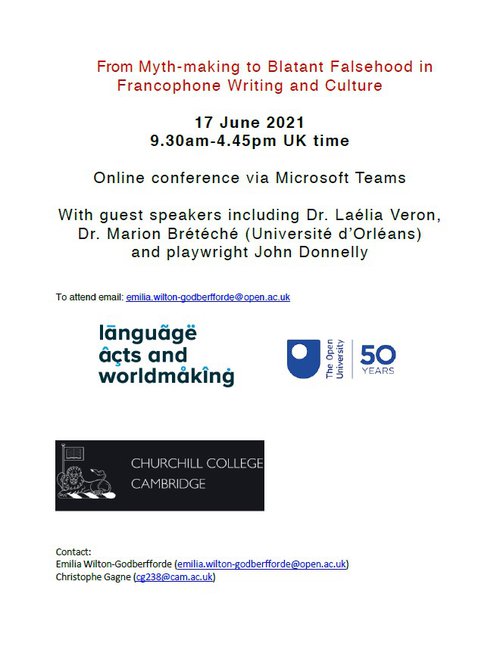
This event looks at the phenomenon of lying and seeks to explore the subject through a multifaceted study of (mis)communication, looking at it across a spectrum, from personal and collective myth-making, to the explicit propagation of lies. For this one-day event, we will look at the way in which mendacity is both a tool of cohesiveness for the community that embraces the lie but is also a means of excluding others and greatening division. In our ‘post-truth’ era, prey to fake news and deceptive rhetoric, this conference seeks to provide an important exploration into the ways falsehood operates (linguistically, artistically and ideologically).
The scope of our study is intentionally wide; the approach aims to be an engaging way of bringing together an interdisciplinary team of researchers who will examine the topic from a myriad of perspectives.
Our guest speakers include:
- Writer, John Donnelly, who will discuss his modernised version of Tartuffe, one of France’s most famous plays about lying and hypocrisy (staged at the National Theatre this year)
- Laélia Véron, lecturer in Stylistics at the Université d’Orléans who will discuss lying and language and her exciting new book, co-written with Maria Candea, Le Français est à nous! Petit manuel d’émancipation linguistique (La Découverte, 2019)
- Marion Brétéché, lecturer in History at the Université d’Orléans who will discuss ‘fake news’ in the early modern period following on from her work with Evelyne Cohen on ‘La Fausse Information de La Gazette à Twitter’ (Le Temps des Medias, 2018)
The conference will take place online via Microsoft Teams. All times are BST/UTC+1. To register, please contact Dr Emilia Wilton-Godberfforde (emilia.wilton-godberfforde@open.ac.uk).
For further information, please contact organisers Dr Christophe Gagne (cg238@cam.ac.uk) and Dr Emilia Wilton-Godberfforde (emilia.wilton-godberfforde@open.ac.uk).
This event is supported by the Language Acts and Worldmaking Small Grants scheme (in conjunction with The Open University and Churchill College, University of Cambridge).